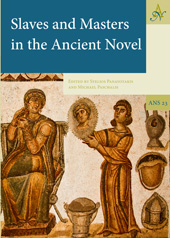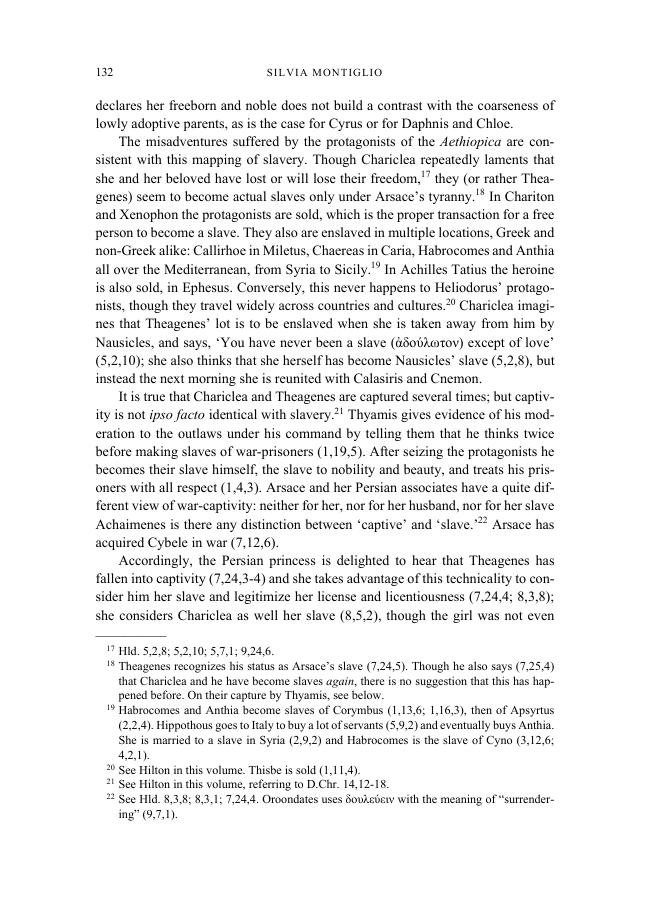Slaves and Masters in the Ancient Novel
411 p.
The present volume contains revised versions of most of the papers that were delivered at RICAN 7, which was held in Rethymnon, Crete, on 27-28 May 2013. The focus of the conference was on the portrayal and function of male and female slaves and their masters/mistresses in the ancient novel and related texts; the complex relationship between these social categories raises questions about slavery and freedom, gender and identity, stability of the self and social mobility, social control and social death. The papers offer a wide and rich range of perspectives: enslavement of elite women in Chariton's Callirhoe and Stoic ideas of moral slavery in Dio Chrysostom (Hilton); reversal of social status and techniques of (self-)characterization in Chariton (De Temmerman); the interaction between implicit and explicit narratives of slavery in Chariton and its effect on the readers of the novel (Owens); the narratological, structural and symbolic centrality of slavery in Xenophon's Ephesiaka (Trzaskoma); the socio-histor
ical dimensions of slavery and the prominent discourse on despotism in Iamblichus' Babyloniaka (Dowden); the balance between historical accuracy and fiction in the representation of slavery in Achilles Tatius (Billault); animals, human slaves and elite masters, and the presence of Rome in Longus' Daphnis and Chloe (Bowie); the distribution of slaves on the geographical, cultural and moral maps drawn in Heliodorus' Aithiopika (Montiglio); slave women and their relationships to their mistresses as positive and negative paradigms of love in Heliodorus' Aithiopika (Morgan and Repath); the freedman's world as a self-perpetuating and closed universe in Petronius' Satyrica (Bodel); beauty, slavery and the destabilization of societal norms and authority figures in Petronius' Satyrica (Panayotakis); the interaction between Roman comedy and elegy in the representation of the relationship of Lucius and Photis in Apuleius' Metamorphoses (May); a comparative analysis of the semantics and function of slavery-related terms.
in pseudo-Lucian's Onos and Apuleius' Metamorphoses (Paschalis); enslaved and free storytelling in the Life of Aesop and the history and evolution of the ancient fable tradition (Lefkowitz). [Publisher's Text].
Special access authorizations may apply; please contact us for further information.
-
Information
ISBN: 9789493194045



